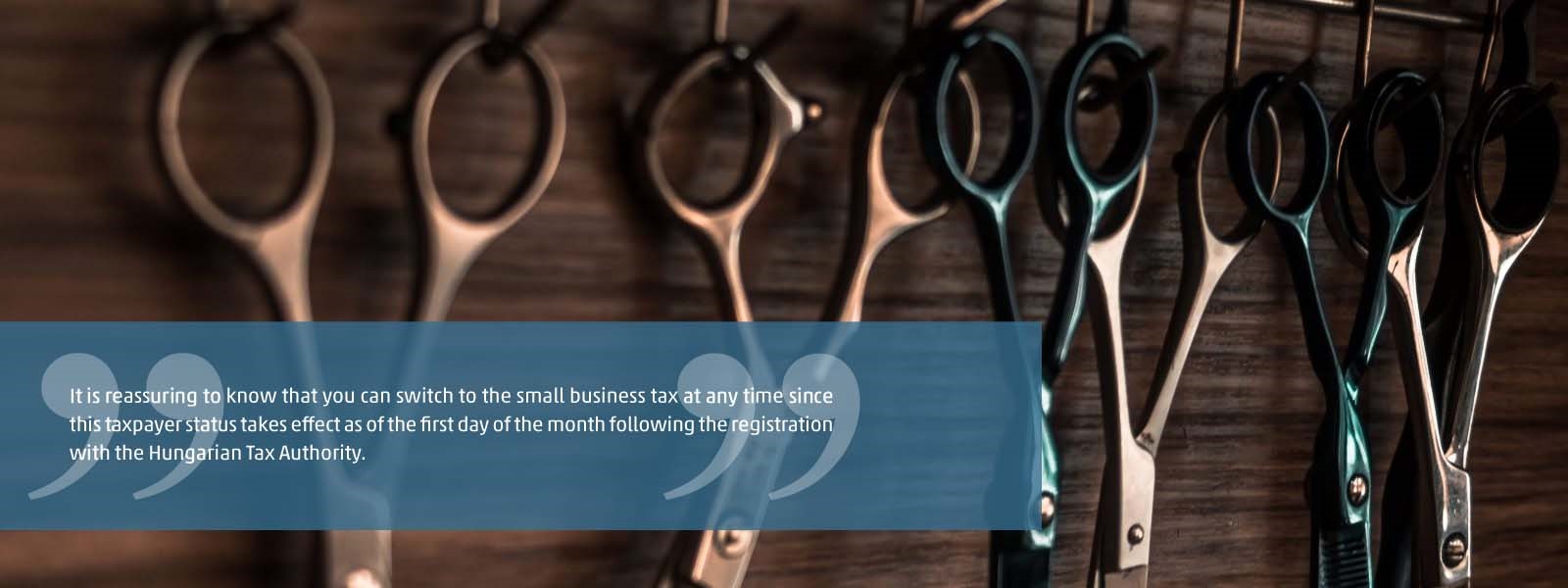Take advantage of the small business tax (Hungarian abbreviation: KIVA)! – this was the title of the notification sent to the business gate accounts of Hungarian companies by the tax authority (NAV) in early December. This notification briefly summarised who could benefit from this type of tax, which taxes it replaces (corporate tax, social contribution tax, vocational training contribution), it detailed the tax calculation method and the benefits of the small business tax, and it also introduced the kiva calculator which provides help when considering whether to make the switch. In our article we go further and look at when and under what conditions Hungarian taxpayers can use this option, and what needs to be done when making the switch.
Down one percentage point from 1 January
As we pointed out earlier, based on the Hungarian summer tax law amendments accepted on 12 July 2019, the small business tax rate was reduced to 12% from 1 January 2020, which further increases the popularity of this tax type. If your company finds itself in a position where your staff costs are higher than your company’s profit, or if you are planning significant developments by regularly investing your profit back into the company or raising capital, then you should consider making the switch.
The small business tax rules can be found in Act CXLVII of 2012 on the Fixed-Rate Tax of Low Tax-Bracket Enterprises and on Small Business Tax, and information booklets are available on the NAV website to help understand the rules.
Who can be small business taxpayers?
Among others, the following types of company in Hungary can choose this option:
- sole entrepreneurs
- general partnerships
- limited partnerships
- limited liability companies
- private companies limited by shares
- law firms
Status as a small business taxpayer is also subject to
- the company having an average headcount not exceeding 50 people in the fiscal year preceding the given fiscal year (also taking related companies into account);
- the company having income accounted in the fiscal year preceding the given fiscal year not exceeding HUF 1 billion (roughly EUR 3 million) prorated in the event of fiscal years shorter than 12 months;
- the company’s tax number not being permanently cancelled by the tax authority in the two calendar years preceding the given fiscal year;
- the balance sheet date of the company’s financial year being 31 December;
- the company’s total assets in the financial statements prepared for the fiscal year preceding the given fiscal year not exceeding HUF 1 billion (roughly EUR 3 million);
- the company not having a controlled foreign company in the fiscal year prior to the given fiscal year;
- the company’s net borrowing costs not exceeding HUF 939,810,000 (EUR 2,797,054 at the time of the publication of this article);
- the company’s enforceable net tax debt recorded by the NAV not exceeding HUF 1 million (roughly EUR 3,000) on the day the taxpayer status is declared.
Switching from corporate tax to small business tax
What happens if there was no time to make the decision during the busy end-of-year period, but you then subsequently decide that you would like to take advantage of this opportunity?
It is reassuring to know that you can switch to the small business tax at any time since this taxpayer status takes effect as of the first day of the month following the registration with the Hungarian Tax Authority. If you failed to do this in December last year, you must know that a separate financial year begins when the small business taxpayer status commences. The general closing tasks must be carried out as of the day before the financial year commences, which include preparing financial statements in accordance with the Act on Accounting and filing them, as well as conducting a prior audit for those subject to an audit. When making the switch in line with the calendar year the deadline for this is 31 May of the following year, but for those changing in the middle of the year the deadline is the last day of the fifth month following the month of the switch.
Corporate tax no more?
In respect of corporate tax, the provisions of the Act on Corporate Tax for terminations without legal succession must be applied, and form ‘71 for the previous year must be submitted (in 2020, form 2071 for switches during the year for example) by the deadline for publishing financial statements. In this corporate tax return the taxpayer does not declare tax advances for the fiscal year after the registration because it is no longer obliged to make such payments. Accordingly, the NAV will delete any previously declared tax advances from the taxpayer’s tax current account ex officio.
However, there is one case where you cannot ignore the corporate tax payment liability in the future, and that is with allowances tied to future conditions. One example of this is the development reserve. Owing to the tax base allowance taken into account in the development reserve, taxpayers switching to the small business tax are still subject to the corporate tax prevailing in the allocation year and any late payment interest on the portion of the amount previously claimed as a deductible for tax purposes which is not spent on investment in the four years following the allocation year and is not used by the end of the fourth fiscal year. The liability arising at this point must be declared in the small business tax return prepared following the event that triggered the liability.
What is good news, however, is that when determining the small business tax base any unused negative corporate tax base that arose while subject to corporate tax can be claimed as a deductible item before it expires.
New companies choosing the small business tax
Companies launching their activity during the year can signal their intent to choose this tax upon registering with the tax authority. If the taxpayer is not obliged to be registered as a company, then the ’T201 form must be completed, while taxpayers that have to register as companies must indicate on their company registration application that they want to opt for small business taxpayer status.
Since choosing small business tax is always an individual decision, we definitely recommend consulting with a tax adviser to ensure you make the correct decision. If you have made your decision, our accountants can help with the related accounting and tax return details. Feel free to contact us.










